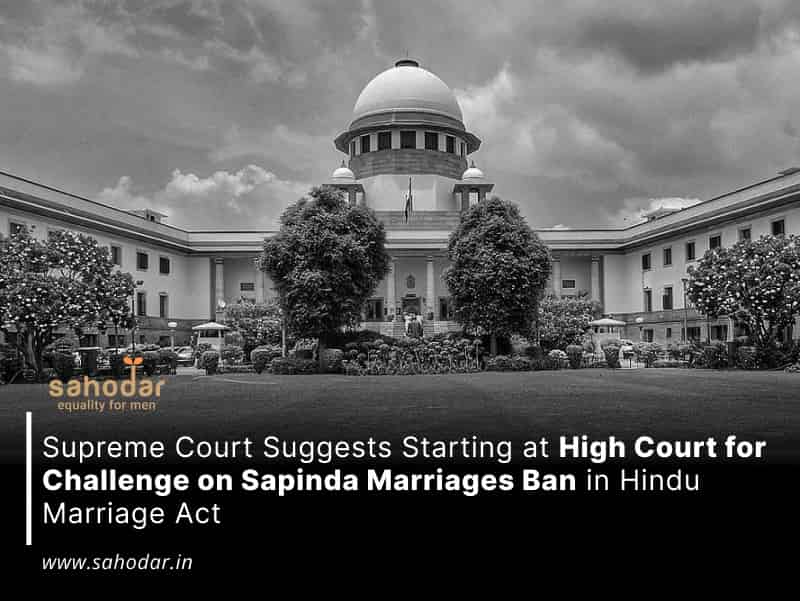A bench of Justices Aniruddha Bose and Augustine George Masih briefly heard submissions in the matter today, before asking the petitioner to approach the High Court first.
On the day of Friday, the Supreme Court, comprising Justices Aniruddha Bose and Augustine George Masih, declined to adjudicate upon a petition challenging the validity of Section 5(v) of the Hindu Marriage Act. This statutory provision prohibits matrimonial alliances between Sapinda relatives, specifically delineated as distant cousins or relatives.
Following a concise consideration of the arguments presented, the esteemed Court directed the petitioner to institute legal proceedings before the High Court as the primary recourse. The Court elucidated that adopting this procedural course would afford the Supreme Court the opportunity to scrutinize any adjudication rendered by the High Court in the event of an eventual elevation of the matter to the apex judicial forum.
“Why don’t you go to the High Court? Try in the High Court first, don’t make it (Supreme Court) the court of first instance,” Justice Bose orally observed.
Advocate Tushar Kumar, representing the petitioner, concurred with the proposal. Consequently, the petition was disposed of, granting the petitioner the liberty to initially approach the pertinent High Court.
The case pertained to a petition filed by a woman who had entered into matrimony with a Sapinda relative. The plea presented to the Court sought the annulment or modification of Section 5(v) of the Hindu Marriage Act of 1955, which proscribes marriages between Hindus identified as (distant) cousins or relatives, commonly known as Sapinda in Hindi.
Alleging mistreatment and attempts to expel her from the marital residence by her husband and his family, the woman contended that they invoked the prohibition under Section 5(v) of the Hindu Marriage Act during the ordeal.
The petitioner argued that the provision had been misused by men as a convenient means to inflict emotional, financial, sexual, and societal abuse upon women connected through a Sapinda relationship.
Narrating her experience, the petitioner claimed that she had been proposed for marriage by the relatives of her distant cousin, whom she subsequently wedded. The marriage, conducted with traditional Hindu rituals, resulted in the birth of a son. However, the petitioner asserted that the marital union was marred by cruelty, torture, and abuse inflicted by her husband and in-laws, coupled with threats of abandonment.
Upon seeking legal remedies, the petitioner alleged that her husband and in-laws consistently cited Section 5(v) as justification. Subsequently, when she threatened legal action, she was ousted from the matrimonial home.
The husband initiated legal proceedings in the trial court to declare the marriage void ab initio, a decision upheld by the Delhi High Court in October. This paved the way for the petitioner’s appeal to the apex court.
The petitioner contended that she had been subjected to organized rape facilitated by the exploitation of a legal loophole. Emphasizing the violation of her fundamental rights to equality before the law and to life and liberty due to the strict interpretation of Section 5(v) of the Hindu Marriage Act, the plea highlighted the broader issues inherent in the case during today’s hearing.
“Can a male person in India approach their own distant cousin for marriage, get married, impregnate her, misbehave with her and then run from his responsibilities, file a petition (to annul the marriage) …?” he asked.
In reply, the Court noted that the affected woman could consider seeking certain remedies, such as maintenance, under the Protection of Women from Domestic Violence Act. It emphasized that the provisions of this act also apply to unmarried women.
The Court clarified that it was not providing legal advice and that the petitioner was responsible for determining the subsequent course of action.

